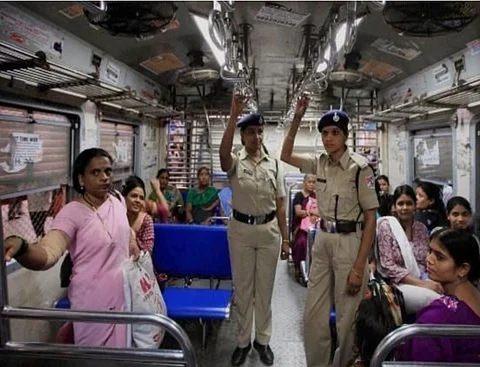
- Home
- Live Blog
- Breaking News
- Top Headlines
- Cities
- NE News
- Sentinel Media
- Sports
- Education
- Jobs

There are a whole lot of people in India who are still afraid of flying and who prefer to travel by train. But obviously that is not the only reason people travel by train. After all, air travel can link us only to the most important cities of the country. People often have reason to travel to less known cities and towns that provide links also to our villages. And in many parts of India, train travel is still regarded as being much safer than other modes of surface travel. Lately, there has even been an increase in the number of crimes committed on our highways by criminals who stop vehicles to loot travellers. That apart, there are fewer train accidents than road accidents due to a quantum rise in the number of drivers without driving licences and experience. So the widely accepted view about safe travel is train travel. And there was no reason to dispute this popular view about safe travel until a few days ago when two young women were strangled to death on running trains in Assam.
These two tragic murders on moving trains have served to underscore a few cold facts about safety (or rather the totally unexpected lack of it) on our trains. One of the killers already apprehended by the police is a person who earlier had a small shop in Tinsukia railway station but had lately become a hawker of garments and clothing on moving trains. The other suspected killer apprehended was picked up from the Bengaluru Express at Dibrugarh railway station. One hopes that the third killer too will soon be apprehended, all three tried expeditiously and sentenced to death well before the two dastardly killings fade from public memory. While the railway police have done a commendable job in apprehending two of the killers without any loss of time, there are a few protective steps that the Indian Railways must initiate in order to completely eliminate such crimes on moving trains. The first step is to ensure that the railway police and the other protection forces engaged by the railways are far more alert and aware of what goes on in the trains than they have proved to be. As on all trains, these personnel were obviously also on the trains wherein the two killings took place. Had they been alert (and seen to be alert), such murders on moving trains may not have been possible. But normally, such security personnel tend to confine themselves to just one part of any train thus leaving the rest of the train vulnerable to the activities of criminals. If they are on the move most of the time, the possibilities of rape and murder being committed on trains can be effectively eliminated. Another step to ensure passenger safety is to put running trains out of bounds to travelling peddlers and vendors. They might be permitted to sell their wares at stations when trains are stationary. But on no account should they be permitted to do business on moving trains. This precaution acquires greater significance due to one of the criminals being a hawker of garments on a moving train. Over time, they get to know any train like the back of their hands and are far more aware of all escape routes than criminals whose normal spheres of activity are not moving trains. Finally, given the growing crime rates in the State, it might be a wise move to have special compartments for unaccompanied women on our trains with female security personnel. One of the reasons why trains in Europe are much safer is that the railways do not permit any hawkers to sell anything on moving trains. We cannot afford to go on deluding ourselves all hawkers who sell things on moving trains are trustworthy and honourable souls.